For service contractors, it can become extremely time-consuming and difficult to manage all your workflows, inspections, proposals, field technicians, repairs, parts, invoices, customer interactions, payment history, and more. In the technology age, customers have rising expectations. Customers don’t want a field service agent to arrive at the last hour of a four-hour window, and then, not have the right tools with them. The contemporary customer also wants these five things:
- Continuous contact
- Hyper-personalization
- More choices
- Quick responses
- More field agent control (so they don’t have to go through multiple departments to get what they need)
The only way for service contractors to stay afloat is by attracting and retaining customers. Yet, many service technicians still depend on paper and pen. There has to be a better way to take service orders, dispatch field technicians, create invoices, process payments and more. Nonetheless, the only way to remain competitive in a digital society is by responding, scheduling, and dispatching service calls in a timely, efficient, and responsive manner. Service contractors need a well-run and relevant customer relationship management (CRM) solution. The goal is to satisfy customers, improve sales, and boost efficiency.
Table of Contents
I. What is a CRM system?
V. Define your requirements
II. The Value of CRM
VI. Getting started with CRM
III. Why use CRM Technology?
VII. Get the most from CRM
IV. Potential pitfalls
VIII. Conclusion
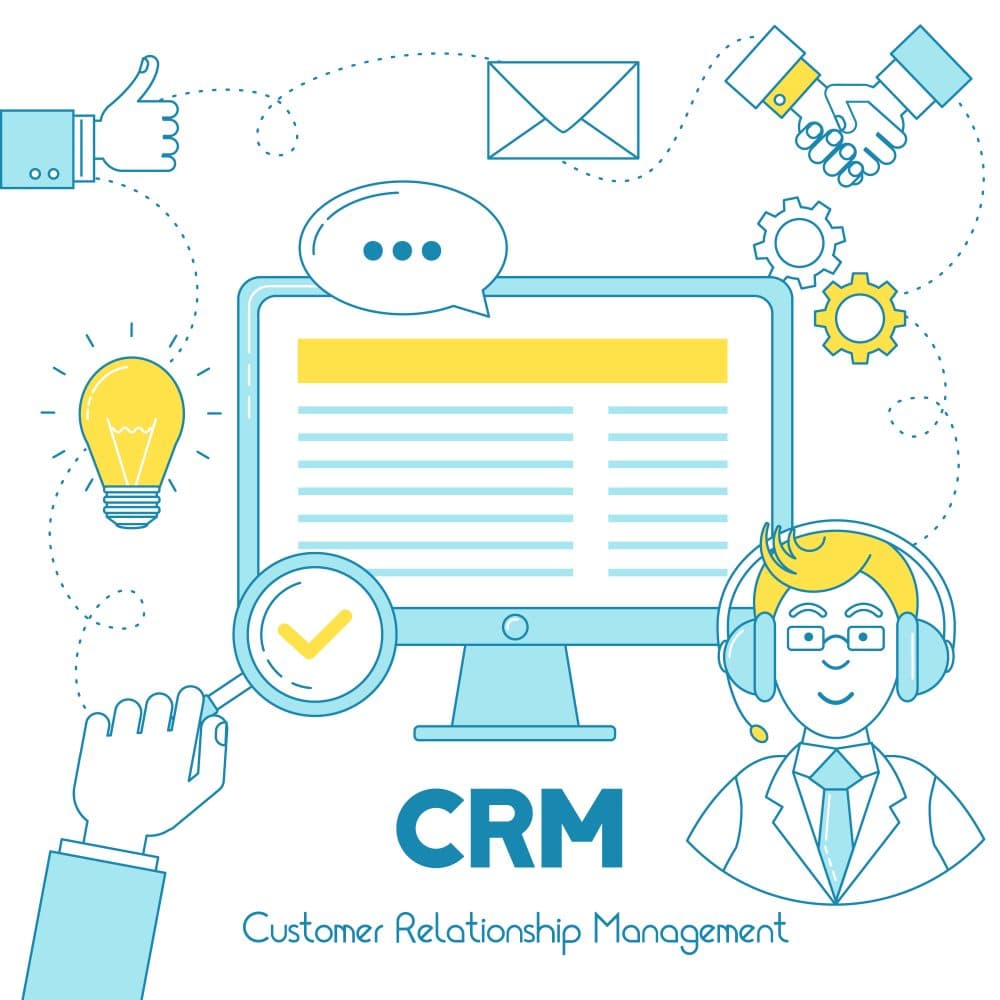
I. What is a CRM system?
For any sized business, it is crucial to have a central database to manage every interaction with customers and prospects. Essentially, a CRM connects customer information to give a big picture view of each client and prospect. To illustrate, if you receive a service call from a specific client, you can look through your CRM to see information on past service calls, interactions, invoices, and more around the same client.Other details might be customer preferences such as times of day when they are normally available or see what they call in for the most. You can also make sure you save time by simply sending your service technician to the right address (because it’s on every screen).This can help your company create a more personalized experience for the client. You want that experience to be based on their past history. So, CRM software helps you achieve this by managing customer relationships and information much more efficiently.
II. The Value of Having a CRM System
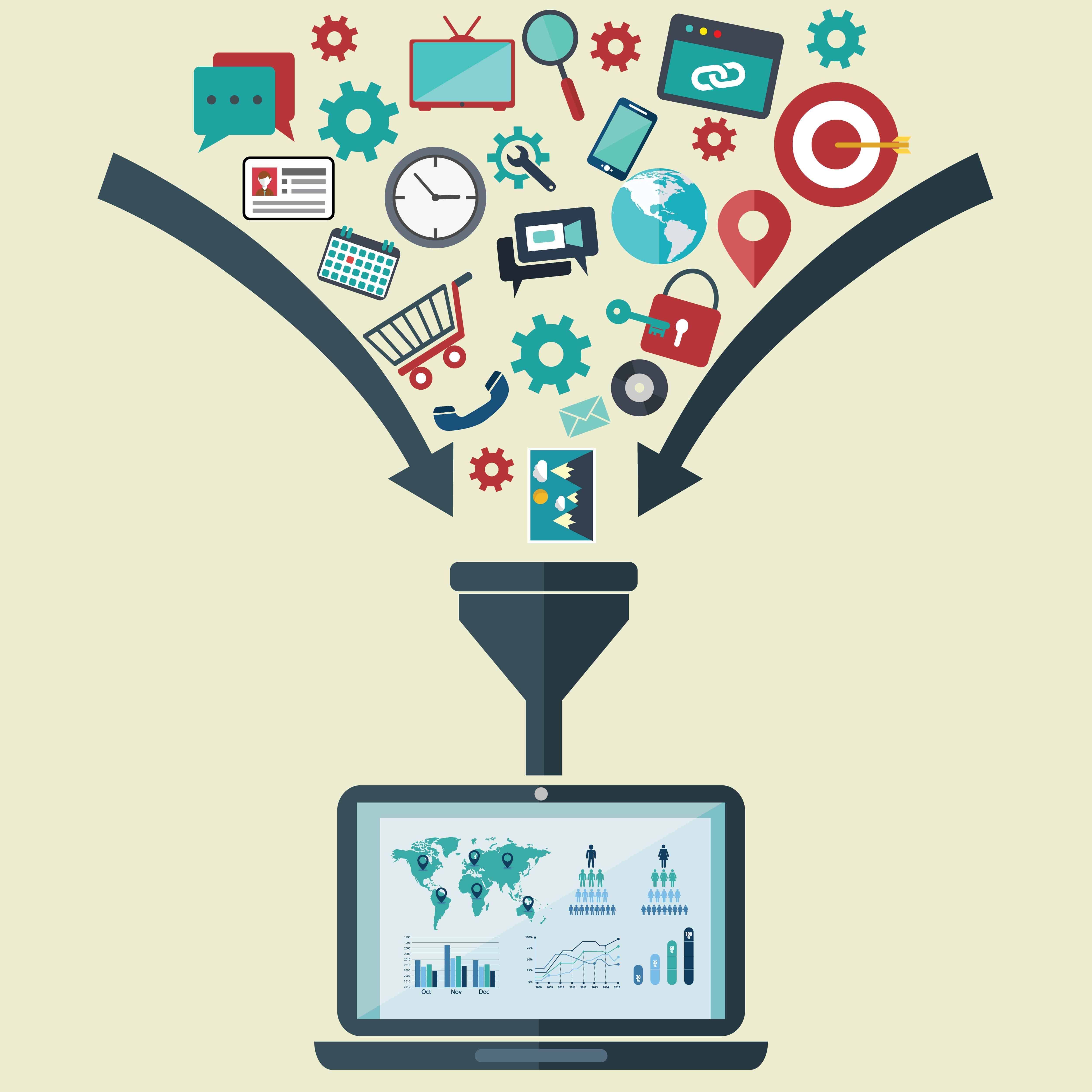
According to Baseline, the average ROI for a CRM system and every dollar spent is $5.60. This means you’ll get back $5.60 for every dollar you invest in CRM.Instead of poring through unorganized paper invoices, or trying to figure out an email trail, you have everything you need in a central database. This information includes phone numbers, best times to call and interaction history. In terms of service contracting, the right CRM system would also help with the necessary features to deliver a more intelligent, productive, and customized field service to each, and every, client and prospect.Service contractors face their own specialized set of challenges around fulfilling customer expectations. Here are a few processes that must be executed correctly:
- Dispatchers must pair the right service technician with each service call
- Jobs must be completed in a timely manner
- Service delivery should be tracked
- Dispatchers need the ability to communicate with service technicians in real time to address any current and pressing issues
- Service technicians need access to accurate information while out on the field
- Service technicians must have the right tools with them
- Field agents can’t afford to lose important paper documents while out on calls such as quotes and invoices
Accurate scheduling and dispatching can make or break a service contractor business. To succeed, dispatchers must have instant access to information such as:
- Which field workers are trained for specific jobs
- What tools are necessary to complete the job
- Which service agents are closest to the next job site.
The right CRM system will offer these benefits:
- Improved customer satisfaction through verified and real-time data
- Decreased travel time with the right information
- Enhanced customer scheduling system
- Efficient matching of the right technician for each job
- Better record-taking capabilities around bids, invoices, payment history, personal interactions, billing, and more
Not to mention, there are maintenance contracts to manage as well as equipment and inventory. And, a CRM system can also have mobile capabilities. This means field agents can quickly access timely information while on the job.
Mobile Access to Information
In today’s hyper-connected world, service contractors will get left behind if they don’t make the commitment to incorporate mobile solutions into their field work. In fact, Skymobile predicted a 500 percent rise in the popularity of mobile CRM in 2016. Access to mobile data has become a requirement for making quick and informed decisions.Through the power of mobile, your field service agents can be connected to the right resources, at any time and from anywhere. Whether the field service agent uses an iPhone, Android phone, or tablet, they should have the ability to effectively manage their clients while on the go.Pen and paper record-keeping just isn’t going to cut it anymore. A CRM system can create itemized estimates and invoices, then email those files to your customer right away. Yet, this is about more than just investing heavily in new technologies. It’s about choosing technologies that supports the way you do business.
III. Why use CRM Technology?
Using a CRM system can be transformational in your business. The technology helps maintain information, but more importantly it can impact how you do business. This is often overlooked when making the choice to use technology, but it should be part of the goals you outline. So what does it look like to use a CRM system?
- More Effective Teams
- For any business to succeed, they must employ skillful communication. Based on a study from the Holmes Report, companies that employ effective communication tactics are able to decrease employee turnover and improve employee engagement.To get there, you must lead by example. A good way to accomplish this is to implement a business-specific CRM system to enable effective communication. When you open the lines of communication, you encourage your employees to follow suit. Plus, a CRM system helps your employees to focus on their job responsibilities and company goals.A CRM system can help them see that vision in a much more structured way. Plus, you can do away with unnecessary emails and meetings. Information dissemination can happen more quickly through a CRM system. Pen and paper is certainly outdated, and so are emails for modern decision-making processes. A CRM system will improve communication throughout all levels of your organization.With a CRM system, effective communication becomes a habit. It also saves from wasting time searching for information that should be easily accessible and visible. With transparent, and company-wide data, your company can become more lucrative, forward-thinking, and responsive.
- Maintaining Records
- What if a prospect was given an estimate six months ago? Can anyone find the estimate? With a CRM, employees can immediately view communications with a prospect and take that interaction to the next level. You don’t need to have a meeting or search for an email because they have all the information they need in the system.Juggling multiple projects, bids, and field service agents is never easy. But, you can’t afford to let your customers pay the price for any of your company’s inefficiencies. Plus, no one can remember every single customer and all their needs.Picture this scenario: you speak with a prospect, and everything goes well. It goes so smoothly, in fact, that you end up reaching the point of giving the prospect an estimate for a new project. Well, since then, weeks have passed and there has been no word from the prospect.Then, the prospect calls in ready to start the job. There is only one problem, you can’t find the paper estimate. With an aligned CRM solution, you can enter all estimates, bids, and invoices electronically. So, you don’t have to search through cabinets and emails while the prospect is waiting to get started.
- Get the Job Done
- Another dreadful situation would be to have a new client with a four-hour appointment window. Then, the service technician arrives late because they had the wrong address. And, once they arrive, they realize they don’t have the right tools or the right skills to complete the job.After all is said and done, it’s also too late to send out another technician. Sadly, the customer must reschedule their appointment. In this situation, the prospect will very likely go with one of your competitors. And if they don’t, you’ve lost revenue and goodwill with the customer.If you had a CRM system, the dispatcher would have the right information to match the service technician to the job. And, the service technician would have access to information in the field. This means they have the right address and can personalize the experience even further based on communication and service history.Field service technicians can see updates on support tickets, inventory, and invoices in real time. They can then ensure they always provide accurate information to customers.Service technicians can view the same repository of data as everyone else in the company, such as:
- Customer service tickets
- Equipment information
- Invoicing history
- Sales data
- Create a forward-thinking business
- It’s relatively easy to create a historical view of your revenue. But, wouldn’t it be even more beneficial to explore leading indicators of your revenue metrics? As a result, you can better determine when you can afford to hire more service technicians, to buy more inventory, or to invest in more company marketing.Within your CRM’s reporting system, you can take a future look into trends within your lead generation records, opportunities, and sales histories. You can also publish sales reports that can help to uncover any issues around factors such as:
- Response times
- Territory coverage
- Lead conversion rates
- You can also manage your marketing campaigns to see which ones were the most effective and plan future marketing activities accordingly.
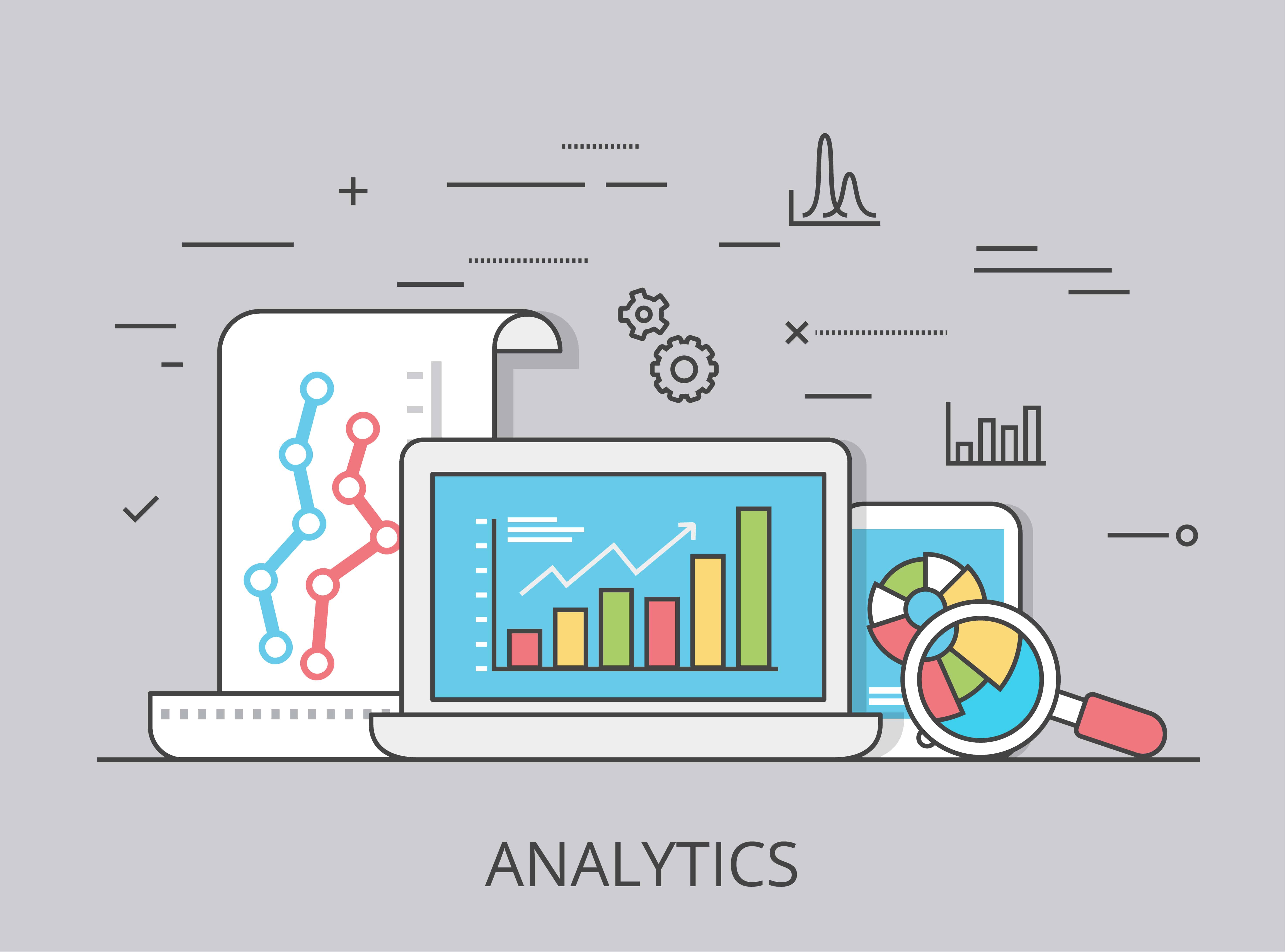
- Uncover best practices
- In the service contractor industry, it is always important to deliver consistent and effective customer experiences. You want every service call to be completed on time and to the customer’s satisfaction. With the right CRM system, you can view every customer interaction–successful or not.Then, you can study the best practices involved with every productive interaction. Those best practices can be converted into templates. Then implement the templates into processes to ensure all employees follow these steps.
- Become more efficient
- Many service contractors worry that they aren’t providing the best service to all of their customers. This can involve losing documents to forgetting to follow up with a lead or missing an appointment. With a CRM system, you can become more efficient by utilizing automated tools that manage all these business functions and actions in one place:
- Communications
- Leads
- Sales
- Workflows
- Quotes / Estimates
- Invoices
- Payments
- You no longer have to worry about dropping the ball.
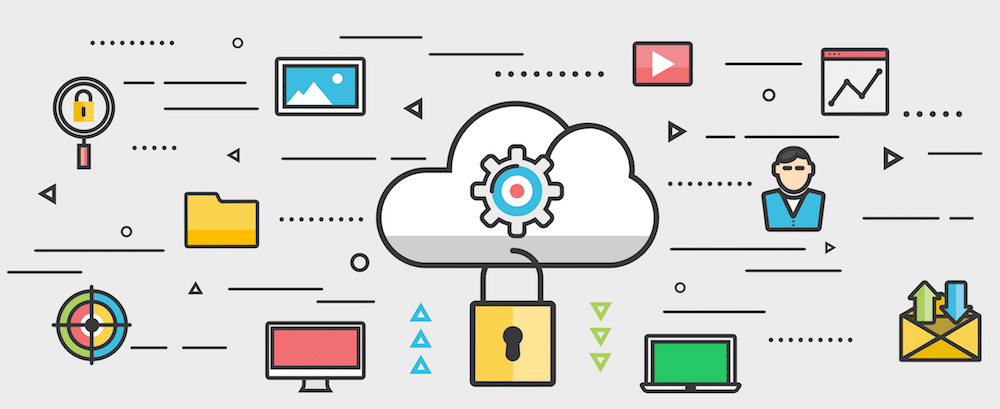
- Track all your events and tasks
- You need a system to track everything from scheduling, to customer equipment, to service contracts, and more. With a CRM system that supports the way you do business you can:
- Get instant reports and updates
- Correctly manage service scheduling and route times
- Manage the audit trails of customer equipment
- Offer a knowledge base to field service agents
- Track work progress, travel, completion, and follow-up
- Utilize GPS-based location tagging
- Offer mobile capabilities to field service agents
- Send customer communications through email or text message
- Improve customer personalization
- The right CRM system will provide a comprehensive view of each customer and their needs. It’s important to know when a customer prefers to be called on, what types of equipment they have, and any information they have offered about their preferences.One of the best ways for smaller companies to compete within a highly-competitive environment is by offering targeted and personalized service. Your CRM system can record the most detailed information about your customers and prospects such as their behaviors and purchase history–even their birthdays. You can’t be expected to remember 500 birthdays. Your CRM can certainly do that for you.
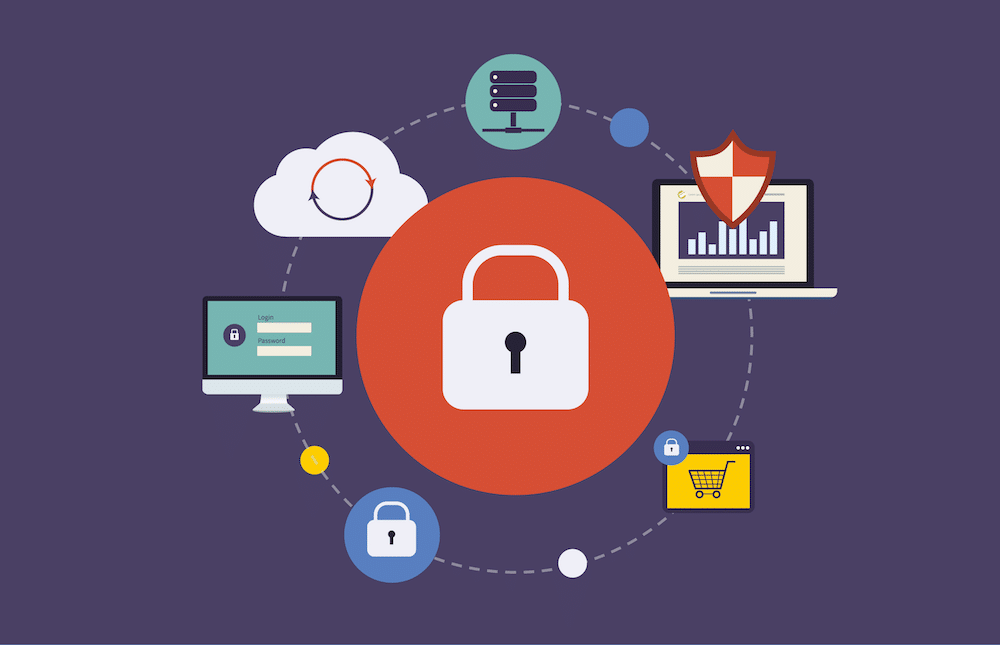
- Manage risk
- Every business experiences employee turnover. A hazard of losing employees is that they take valuable information with them. This is something sales departments would begrudgingly endure when a top salesperson would leave with their list of important clients and related data.Well, you won’t have to worry about that with a CRM system. You won’t be concerned with lost deals and missing sales targets either. A CRM system offers continuity because leads, opportunities, and customer data are saved in the system. Instead of requiring a former employee to dish out their knowledge, it only takes a few minutes to get a new employee up to speed.So there is a seamless transfer of job responsibilities and the necessary customer data needed to perform their role successfully. In addition, new employees can follow up with prospects and customers right away.
- Automate marketing
- You can also use data from your CRM system to run email campaigns.. And, you can segment your campaigns based on data points like customer spend, customer type, location, and more.Then, you can view your email dashboard to see if your prospect or client has responded. It is extremely difficult to build long-term relationships with just a spreadsheet.
IV. Potential pitfalls around implementing a CRM system
Choosing to use CRM software doesn’t mean that everything will go perfectly, but there are definitely ways to make your platform a success. The reality is that when the right CRM is chosen and it’s well-planned, failure is much less likely.Many service contractors operate on limited budgets. Investing in the right CRM can prove to be a great return on investment. It’s important to choose a system that is priced to fit the size of your business. For any company operating on limited resources, every cost must be explained clearly and justified.Then, there are the issues that can come with successful data integration. One reason for using a CRM platform is to compile all your customer data into a central database. So, you want a CRM solution that offers seamless data integration. Losing customer data can mean lost sales opportunities.Data doesn’t have to live in a silo. It is possible to manage your leads, customers, payments, quotes, and service technicians from one system, like FieldPulse. Making the decision to sync your customer and invoicing data should be holistic and relevant to how you run your business. With the appropriate CRM system, you don’t need to operate several silos. All you need to manage is one integrated database.
V. The Key to Success: Define your requirements
To get the most out of your CRM, it is crucial to first define and understand your specific requirements. Your CRM selection and implementation will be based on your core requirements.It’s a no brainer that your CRM system should support how you do business. For instance, if you send technicians out into the field, your CRM system should offer mobile apps to track all work done outside of the office. But here are some additional things to consider:
- An inventory of your existing record-keeping systems
- Your pain points – what processes are give you the most issues?
- An idea of what you would like the company to look like and how you would like your business to operate with CRM in place
- An overview of how your company currently manages information
- Your need to have user-friendly templates for sending quick updates, and consistent communications, to prospects and customers
- Review how you store customer files, photos and documents
Naturally, there will be a lot of excitement around the selection of a new CRM system. Yet, it is highly imperative to start with a budget first. The last thing you want to experience is buyer’s remorse. Furthermore, when you are clear about your requirements, you can speed up the selection process. Instead of waiting on demos from various vendors, you already know exactly what you want.With your requirements defined, you won’t be confused by all the glittery features. And you can make a much faster decision. Also, if you have your requirements set, then vendors will now have the task of meeting those requirements. You will help your chosen vendors by telling them what you need, specifically. They can then focus their offerings around addressing your exact needs.And, you can also figure out what other types of add-ons are needed to meet your requirements. Not to mention, if you begin the selection process early, then you will have more time to review and refine your requirements as needed
Uncovering Your Platform Needs
So, how do you create a clear set of requirements? Here are a few suggestions to start with. The CRM system should:
- Offer organized dispatch and scheduling
- Manage service calls as well as ongoing projects
- Manage milestones and progress for every job
- Include the ability to attach files, photos, and documents
- Be customized to include your branding, your terms and conditions / contracts, as well as custom data tracking (and custom forms)
You also want to create a checklist of requirements to focus on the key issues you want to solve. Here are several questions to answer to help build this checklist:
- What are your key business drivers?
- Think about the objectives you want to achieve and what problems you need to solve. By identifying what drives your business, or what should drive your business to achieve the results you need, you will discover requirements that will directly impact your success.
- Who are the main stakeholders?
- Defining your CRM requirements also means thinking of your end users. Think of the types of obstacles they face on a consistent basis. Which types of tools, functions, and features would they need to facilitate more job productivity?
- What are your factors for success?
- How would a successful CRM implementation look to you?
- How do you measure success?
- Is it more market share? Will it be increased customer satisfaction? How do you measure success? Through detailed reporting?
- Will it improve customer relationships?
- What types of suggestions have you received from your customers? Will a new CRM system enable the execution of relevant customer ideas? Will it make a positive impact on customer interactions?
- Do you need a flexible system to accommodate long-term goals?
- It’s important to figure out both your short-term and long-term goals. Then, consider any future plans for your business and what type of system is needed to scale with your business.
- What about non-functional needs?
- These revolve around how a system operates and include:
- Disaster recovery features
- Overall cost
- Uptime
- Scalability
- Design
- It goes without saying that you would want a user-friendly system. This makes implementation and adoption much easier throughout the entire company.Design can include field items such as pick list values, custom fields, workflow rules and more. Depending on the size of your business, design and function can fall within the same list.
Use your requirements to select the right CRM system
Your requirements will help determine what types of features make the most sense for your company. You want the CRM system to easily integrate with the way you already do business. Plus, it’s important to consider whether the system is built for large or smaller businesses. Here, we’ve included a list—and comparison–of some of the most well-known CRM systems on the market today.
- SalesForce CRM
- SalesForce is one of the most popular CRM products on the market. They are especially well-known for serving the largest companies of the Fortune 500. They do offer an SMB product for up to 5 users. It is designed to support companies in various industries, so it is very customizable.For larger companies there is a field service component to the platform called SalesForce Field Service Lightning. As part of their Service Cloud product, it is available at an extra cost, but only if you already have a license for their Salesforce CRM.
- Pipedrive
- Pipedrive is a CRM system that can track emails, progress and calls automatically. While not designed specifically for service contractors, it has features such as a visual sales pipeline to help you determine where to create more conversions.Pipedrive also offers email templates, which can be sent from the CRM system. You can then see who opened your emails. You can customize the fields around your business needs. It also has a drag-and-drop interface. And, it comes with iOS and Android apps.
- Propeller CRM
- Propeller CRM is a lightweight solution that enables pipeline management through Gmail. It is not designed specifically to suit the needs of service contractors. It does offer templates, follow-up reminders, and email tracking.
- Zoho CRM
- Zoho CRM is a more traditional approach to CRM systems with modules for sales, marketing, and service. There are three editions based on the size of your business. It is not built specifically for service contractors, but it does offer a user-friendly interface.Zoho CRM also features a separate database for leads. Using Adobe Flash technology, the dashboard offers visuals such as three-dimensional charts. In terms of forecast reporting, you will get the basics such as showing gaps between sales quota and percentage quotas.
- HubSpot CRM
- HubSpot offers a free CRM system with a set of core features including:
- Contact management
- Tasks
- Gmail and Outlook integration
- Company insights
- If you choose the sales hub edition, you would get email scheduling, email templates, email tracking, and documents. It comes with a drag-and-drop interface where you can drag deals from one stage to the next. HubSpot offers these features as “free forever.”While the core features are free, it will cost $50 per user to get five more customized templates. Also, it is a little clunky when working between the marketing side and the sales side. In addition, HubSpot CRM doesn’t offer any service contracting-specific features or functions.
- FieldPulse
- This CRM system is known as the “All-in-One Service Business and Contractor Software.” Unlike the other offerings on this list, FieldPulse was designed specifically for service contractors. It comes with tools to help create estimates and invoices, schedule jobs, keep track of your team, and efficiently manage customers. So, customer data is related to payments, jobs, estimates, invoices and more.FieldPulse focuses on giving your business the functions it needs. As a result, you aren’t overspending on enterprise technology while keeping things simple and user-friendly. FieldPulse is available for your Android, iOS, or computer WebApp. It is a specialized solution that can be tailored to any form of service contracting from HVAC contractors to roofing companies, to electrical contractors.Update statuses quickly, and this includes the ability to attach files and photos. In addition, FieldPulse offers quick views of everyone’s schedule to route jobs efficiently and monitor the status. Then, there are features such as time tracking and GPS location tagging. Plus, every user can create itemized estimates and invoices from anywhere.
FieldPulseSalesForcePipedrivePropellerZohoHubSpotEntry priceStarts at $20/month$75/user/month (billed annually, on top of Salesforce CRM pricing)$12/user/month$29/user/month$12/user/monthFreeEase of useVery user-friendlyCould be more user-friendlyVisual sales pipelineCould be more user-friendly User-friendly Somewhat user-friendlyMobile appsYesYesYesNo YesYesQuick setupYesDependsYesNo YesYes
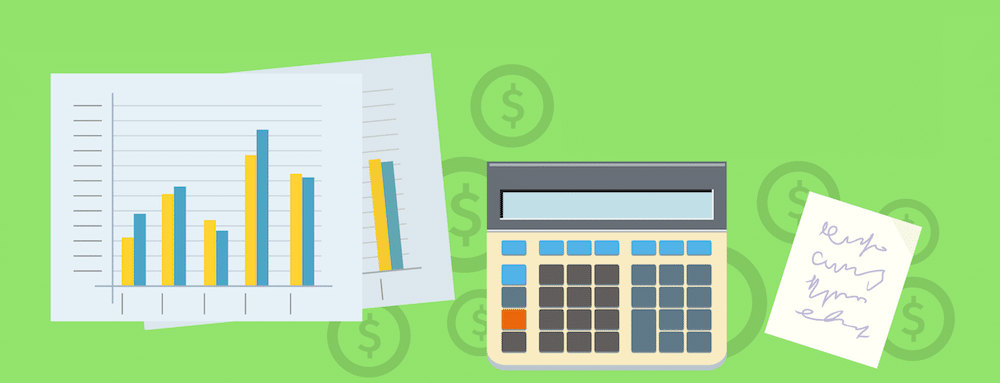
VI. Getting started with your new CRM system
Every area of your business requires a set of standards, and this includes your CRM system. With standards, you can keep all processes running as intended. Furthermore, your employees will appreciate a set of rules to follow as standards help to set a level of expectation and predictability. For your CRM, it is critical to set a standard of performance.One key to implementing standards is to make them short. Since these will be a set of guidelines, they should fit onto one sheet to make it easy for your employees to view. Another critical piece is to measure your progress. For every objective of your CRM system, standards should be set for measuring progress against your goals.Your standards should cover all of the ways you will use your CRM system. They can include actions such as:
- Recording customer contact
- Improving customer service
- Tracking information to use in marketing
- Recording on-site activity for better service tracking
Other areas you might consider setting expectations around:
- Ensuring all records are kept up-to-date
- Cleaning records on a quarterly basis
- Utilizing mobile CRM on every service call
- Using templates for bidding and invoicing
- Segmenting marketing profiles through your CRM
- Entering every new lead through the CRM system
It takes some thought to determine your the rules of your CRM system. The good news is it puts everyone on the same page. It also creates unity around usage, and it keeps your data consistent and available.
Plan for the CRM roll out
One of the biggest challenges of rolling out a new CRM system is getting your employees to use it regularly. But with a little planning, you’ll get your team on-board and loving the new system. This can go back to the requirements stage where you thought through the needs of your end users.With a roll out, it is important to have an organized process for a smooth start. The last thing you need is for your staff to feel overwhelmed and resentful, but taking a ew steps will keep that from happening. Continue reading for several suggested steps to take:
- Get employee buy-in from day one
- Share the many advantages of implementing a new CRM system with your team. Then, educate your employees on the benefits they can expect, such as making their job easier. Or helping to improve customer satisfaction, which also makes their lives easier since they don’t have to deal with angry clients.Share all the reasons behind your CRM selection and how it will help your company reach its business objectives. Let employees know how important their roles are in achieving that success. The goal is to get their buy-in from the beginning.
- Determine your plan for data
- At this point, you have already thought through your data needs. So, you can either start with a full migration of all your data or to work on an “as needed” basis. To illustrate, you might load new invoices first before loading old ones.This way, you can work on current projects and load older data based on your schedule and needs. During the data load process, take the opportunity to remove duplicates and outdated information. Clean up any bad records.
- Train your end users immediately
- One of the reasons for CRM pushback is employees can feel as if they don’t have enough time to get used to a new CRM system. You can’t expect your employees to start using the system without proper training.Employees want to be kept in the loop when new systems are being implemented and configured. So, start training as soon as possible. This gives your employees, and field service technicians, enough time to get acquainted with the system.
- Test your implementation
- Make sure everything works as expected. This is often a forgotten step within the rollout process. You want to make sure all systems are ready to go before you use them with live customers and prospects. This can be done with “live” information, but you might limit it to the core users of the system. Consider selecting employees that are more tech-savvy and eager to use the new system.
- Offer ongoing support
- Going live does not mean that employees won’t need support. There should be at least one “expert” in the office to offer tips, answers to questions, and to help with any issues.This individual should also be aware of their role as the go-to CRM person in the office. You should also share resources such as a knowledge base with your employees. Let them know where they can go to find answers on their own.
VII. Get the most from your CRM system
With your new CRM system, you can keep track of workflows, customer data, customer history, customer preferences, bids, invoices and more. Plus, all this data can be accessed from a single location – and via mobile device.
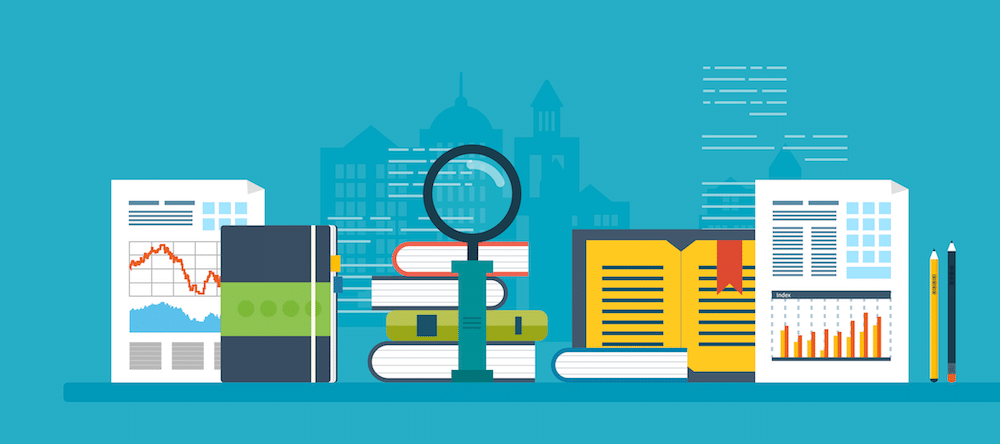
Having real-time information
When you first opened for business, it might have been fine to use a pen and paper. Perhaps emails, sticky notes, and spreadsheets did the job well enough. Now that your business is growing, you can’t depend on those tactics to help you make informed and quick decisions. Plus, a CRM system will make managers’ lives easier. A CRM system will let you know what your service technicians are up to. You can see how they’re performing, what they’re working on, what they’ve invoiced, and more.Since field service technicians can update their details from their mobile CRM, you can act instantaneously – if needed. You can also track their travel with location tracking. When you have a central view of your business, you can determine where to position extra resources. You can also forecast future sales with enhanced accuracy. Even simple route optimization can make a positive impact on your revenues.
Excel at customer service
It’s difficult enough to get customers. For small-to-midsized businesses, it can be a fatal business blow to lose customers due to below-average customer service. You want to transition your team from reactionary tactics to more proactive strategies. It is crucial to have the ability to anticipate your customer’s needs.With an aligned CRM system, you get a unified customer view that gives you the opportunity to create an unparalleled customer experience. With shared knowledge, office staff and field service technicians are better prepared to answer a wide variety of questions. Customers don’t have to worry about speaking to multiple people just to answer one question.If you see a prospect was last contacted two months ago, you know it’s time to reach out again. You can engage in proactive outreach efforts that pay off in dividends.
Prepare for the future
Think about where you want your business to be five or 10 years from now. Can you manage hundreds, or thousands of customers, via an Excel spreadsheet? With 10 or fewer customers, manual tracking is doable. But, think ahead to five years from now.If you want to triple your revenue, then you are going to have to acquire new customers and have the ability to maintain long-term relationships. You also want to have the ability to monitor your technician’s strategies and touchpoints to determine which tactics work best.
Communicate more efficiently
If you want to scale your business, and manage long-term relationships, you need more than just an Excel spreadsheet. Every customer is different. But keeping in touch with customers, and knowing when to communicate with them is important.For example, you want your customers to feel appreciated. A CRM system can reminder you of important events for your most loyal customers. That way you can immediately send out messages to remind them how much you appreciate their business.If used correctly, and proactively, your CRM system can transform your business. To reach its full potential you should:
- Maintain simplicity
- The first step is to get everyone to use the system consistently. Regular use will only happen when the system is user-friendly. So, this requires simplicity to start. Wait until you master certain process before you add new features.
- Link the system to your company objectives
- If your desire is to increase productivity, which can improve customer satisfaction, then your CRM system should be used for that function. As a result, it is important to focus only on the things that matter most to your business.A CRM system should be used as a tool to reach your company objectives. Too many bells and whistles can be distracting. Every feature should be designed to support your way of doing business and make it better.

- Use your CRM system for customer service
- A CRM system’s best function is to improve customer service. It does this by providing quick access to data, when needed, from anywhere. So when your field service agents are heading to a job, they have all the customer’s information at their fingertips. They can also send custom invoices once the project is completed. A CRM system makes it easy to view and record customer data.When a former customer calls in, requesting a service call, you can easily pull up their information and purchase history or estimates. Thinking of how your CRM system improves customer service will benefit both perceived value and overall adoption. Expect the insights and advantages to flow.
- Request feedback
- Your CRM system must work not just for your company, but also for your employees. Your field service agents and sales reps are the first line of contact with your prospects and customers.Keep up to date with how your employees are interacting with the CRM system and whether it is making their lives easier. Since your employees will use the system the most, their feedback can be invaluable. Plus, it helps to resolve issues expediently.
VIII. In conclusion
Investing in a CRM system that is specific to your business helps to improve productivity, customer satisfaction, and overall service delivery. For your business to remain competitive in a digital marketplace, you need a CRM system. Customers are becoming increasingly sophisticated, with rising expectations.The old, pen and paper methods no longer work. To achieve a predictive view of your future, you need a CRM. The right CRM also facilitates a system of continual improvement.With mobile apps, accurate record management, and real-time access to information, your team can now offer the best, most personalized service to your customers at all times. Of course, it’s important to use a CRM system designed specifically for service contractors. And, your rewards will include a solid return on your investment, more efficiency, and satisfied customers.
